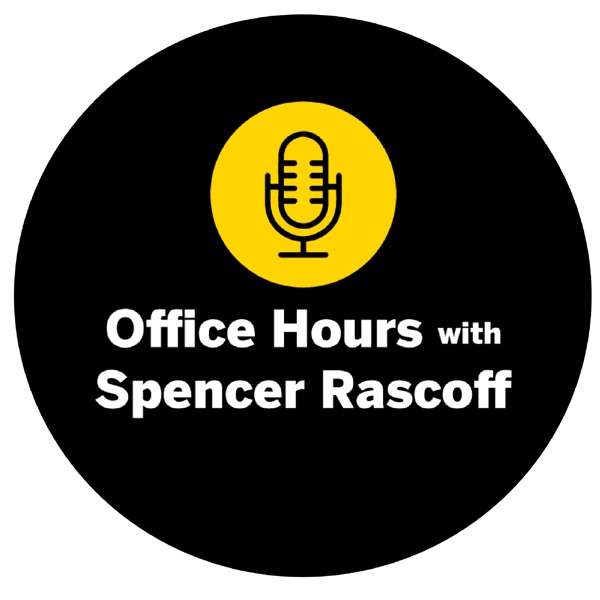Welcome to “Future Positive,” a podcast from XPRIZE. We convene the world’s brightest minds, across a kaleidoscope of cultures and points of view, revealing their inspirations, and how and why they will change the world. The views on this podcast are not those of XPRIZE.
Democracy’s obituary? Part 1: The Dark Side of Technology
The end of the 20th century saw the implosion of communist dictatorships across the globe. In 1989 with the fall of the Berlin wall, we saw democracy greatly expanding, and in the 1989 essay “The End of History’’ American academic Frances Fukuyama declared a victory and the universalization of western liberalism. Fast forward to today, where we have Turkey and Venezuela sprinting away from democracy and even the American experiment hangs in the balance with the rise of fake-news, misinformation and lack of leadership. The gloves are off. We join political educator, social commentator, and Chief Advancement Officer Shlomy Kattan as he gathers Susan Herman, head of ACLU, political innovator Joe Trippi and “professor in exile” Bret Weinstein, for a special two-part episode that rips the band-aid off taboo topics like campaign corruption, UNITY 2020 and the conversation du jour - changing the system of government with a courageous, capable, patriotic bi-partisan team. Oh, and we get deep on tools, teams and techniques on election hacking. Fireworks.
Susan N. Herman was elected President of the American Civil Liberties Union in October 2008, after having served on the ACLU National Board of Directors, as a member of the Executive Committee, and as General Counsel. Herman holds a chair as Centennial Professor of Law at Brooklyn Law School, where she teaches courses in Constitutional Law and Criminal Procedure, and seminars on Law and Literature, and Terrorism and Civil Liberties
She writes extensively on constitutional and criminal procedure topics for scholarly and other publications, ranging from law reviews and books to periodicals and on-line publications. Her most recent book, Taking Liberties: The War on Terror and the Erosion of American Democracy, (Oxford University Press 2011; 2014 paperback), is the winner of the 2012 Roy C. Palmer Civil Liberties Prize.
Herman has also discussed constitutional law issues on radio, including NPR shows around the country; on television, including programs on PBS, CSPAN, NBC, MSNBC and a series of appearances on the Today in New York show; and in print media including Newsday, TIME, the Huffington Post, and the New York Times.
She has been a frequent speaker at academic conferences and continuing legal education events organized by groups including the Federal Judicial Center, and at numerous law schools, colleges (including the U.S. Army War College), universities, and high schools. She has also spoken at dozens of non-academic conferences, including recent appearances at the 2017 Web Summit in Lisbon, Wikimania, the Brussels Forum, the National Archives, etc. She has received awards from groups as disparate as the Japanese-American Bar Association, the United Sikhs, and the Theatre of the Oppressed NYC.
Herman has also participated in Supreme Court litigation, writing and collaborating on amicus curiae briefs for the ACLU on a range of constitutional criminal procedure issues, most recently in Riley v. California, 134 S. Ct. 2473 (2014), where the Supreme Court accepted the argument that cell phones cannot be searched “incident to arrest” without a search warrant.
Herman received a B.A. from Barnard College as a philosophy major, and a J.D. from New York University School of Law, where she was a Note and Comment Editor on the N.Y.U. Law Review. Before entering teaching, Professor Herman was Pro Se Law Clerk for the United States Court of Appeals for the Second Circuit, and Staff Attorney and then Associate Director of Prisoners' Legal Services of New York.
Heralded on the cover of The New Republic as the man who “reinvented campaigning,” Joe Trippi has been at the forefront of movement politics for nearly 40 years. Trippi began his political career working on Edward M. Kennedy’s presidential campaign in 1980 and has worked on numerous presidential, gubernatorial, senate, and congressional campaigns ever since.
Most recently, Trippi was a senior strategist on Doug Jones’ historic victory in Alabama, helping elect the first Democrat U.S. Senator in Alabama in 25 years. Trippi wrote the ads and helped build the campaign strategy which was recognized with 7 Reed Awards and 3 Pollie Awards, including the “Best in Show” award for a Democratic Campaign.
Trippi helped engineer a number of groundbreaking House victories for Representatives Ro Khanna, Tulsi Gabbard, Mark Takano, and Seth Moulton. In 2014, Trippi advised and produced the ads for Seth Moulton in one of the biggest upsets of the year, beating 18-year incumbent John Tierney. One ad, “Re-elect,” propelled Seth to victory and was named “the best […] of the primary ads.”
In 2010, Trippi was a senior strategist and media consultant in Jerry Brown’s successful run for California Governor. The campaign’s ads were described as “clever” and “amazing,” and they were widely considered some of best of 2010. TIME magazine named one ad, “Echo,” the best ad of 2010, and the Brown ads received four “Pollie” awards for excellence in political media.
In 2004, as the National Campaign Manager for Howard Dean’s presidential campaign, Trippi pioneered the use of online technology to organize what became the largest grassroots movement in presidential politics. Through his innovative use of the Internet for small-donor fundraising, “Dean for America” raised more money than any Democratic presidential campaign to that point – all with donations averaging less than $100.
Trippi and his team pioneered the empowerment message and the online community tools that President Barack Obama used, which inspired a movement of supporters and has now become the basis for movement politics all around the world.
Trippi has an extensive international resume. In 1993, he worked for then-PASOK leader Andreas Papandreou’s successful campaign of Prime Minister of Greece, as well as for his son, George Papandreou in 2007. Trippi advised former British Prime Minister Tony Blair during his successful election. In 2006, he worked for Romano Prodi on his winning race for Prime Minister of Italy. In 2008, Trippi helped Morgan Tsvangirai and the Movement for Democratic Change receive the most votes and helped garner international media attention to Robert Mugabe’s democratic subversion and violence. These efforts led to a ‘unity’ government and Tsvangirai becoming Prime Minister of Zimbabwe. In 2011, Trippi helped elect Nigerian President Goodluck Jonathan.
In 2016, Trippi founded Vanguard Africa, to provide advice and technical support to pro-democracy and anti-corruption candidates. Among other races, as part of the international campaign team, Trippi helped oust Gambia’s dictator, Yahya Jammeh.
In addition to his political work, Trippi has consulted with a number of leading non-profits and corporations including the Humane Society of the United States, the American Cancer Society, Best Friends Animal Society, Monster.com, Toyota, DaimlerChrysler, SES Americom, Corning, LabCorp, IBM, Lionsgate Films, BestBuy, and Wave Systems.
Trippi is a CNN Contributor and the Author of The Revolution Will Not Be Televised.
www.aclu.org
xprize.org/blog
https://tnrcampaigns.com
Hosted on Acast. See acast.com/privacy for more information.

 Our TOPPODCAST Picks
Our TOPPODCAST Picks  Stay Connected
Stay Connected







